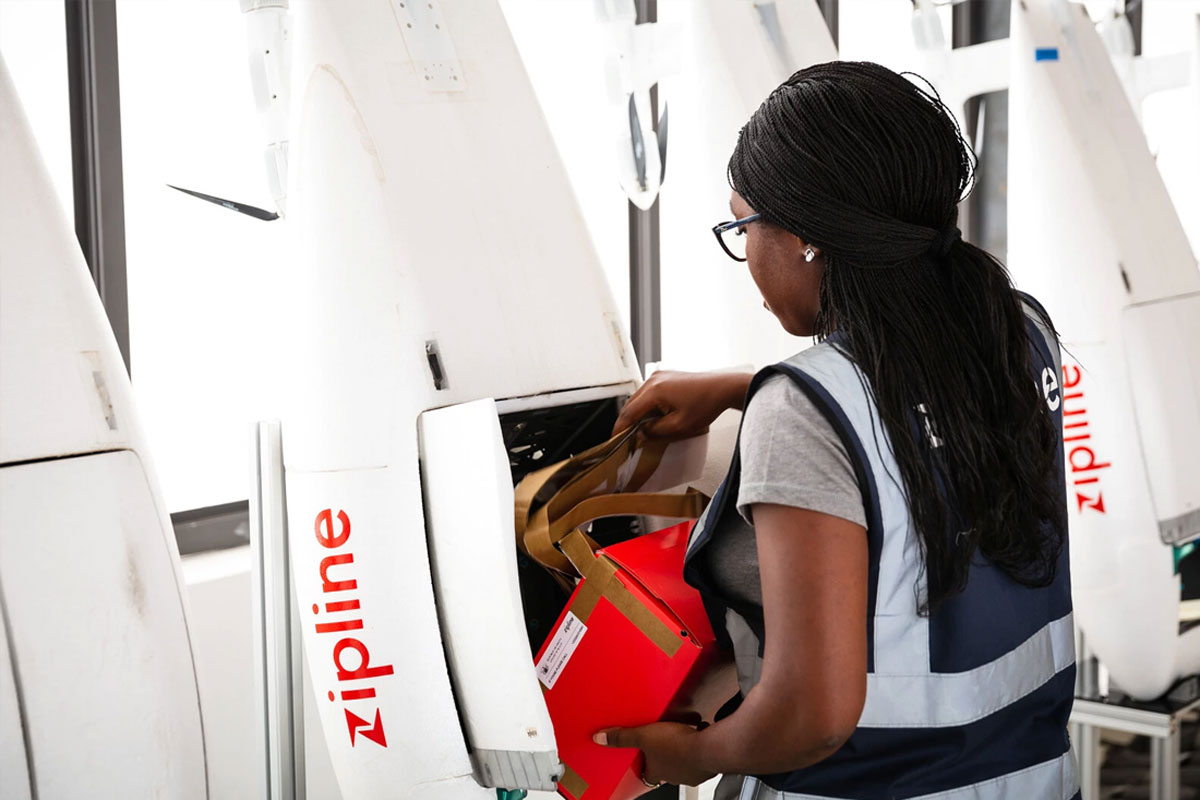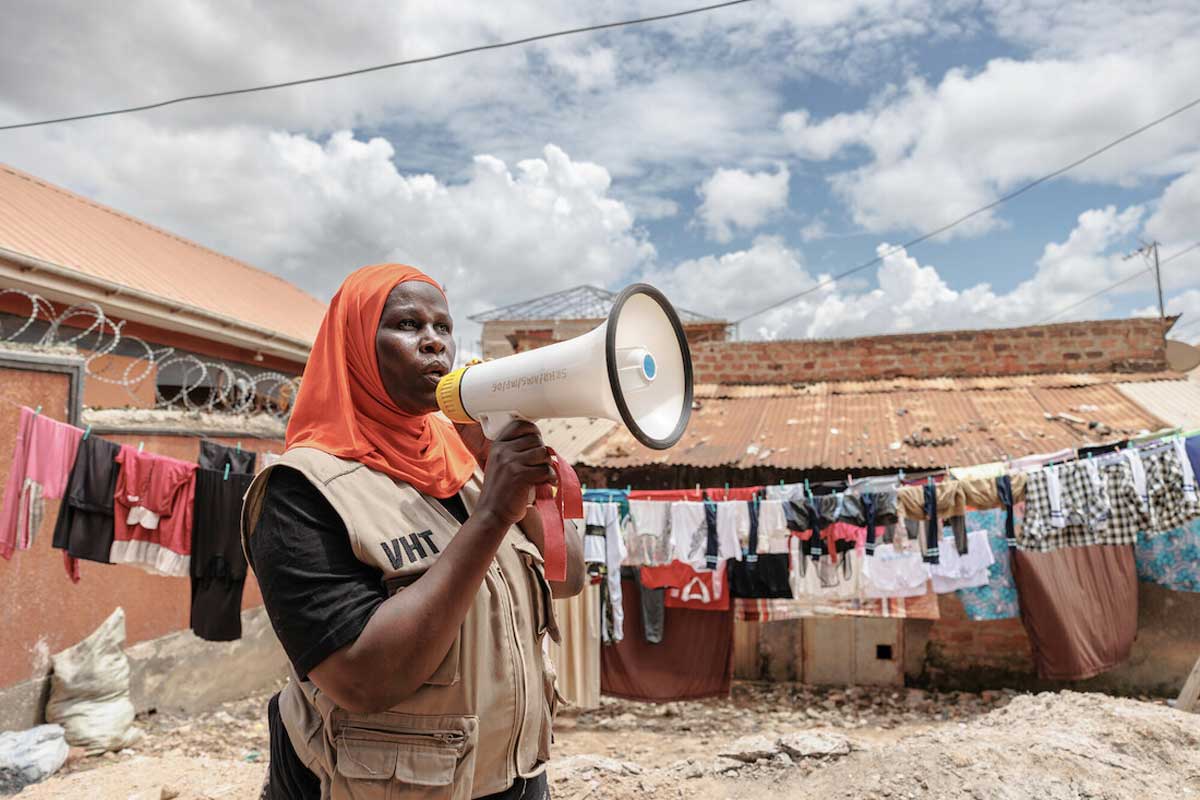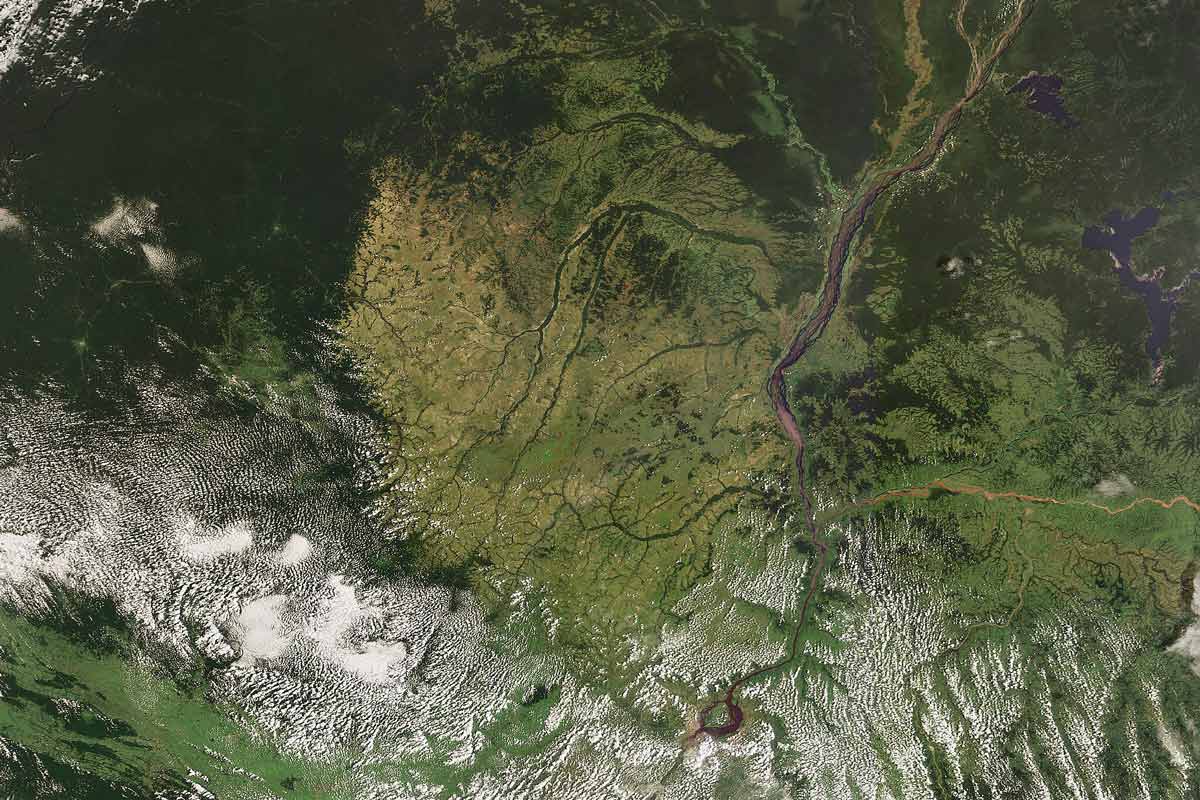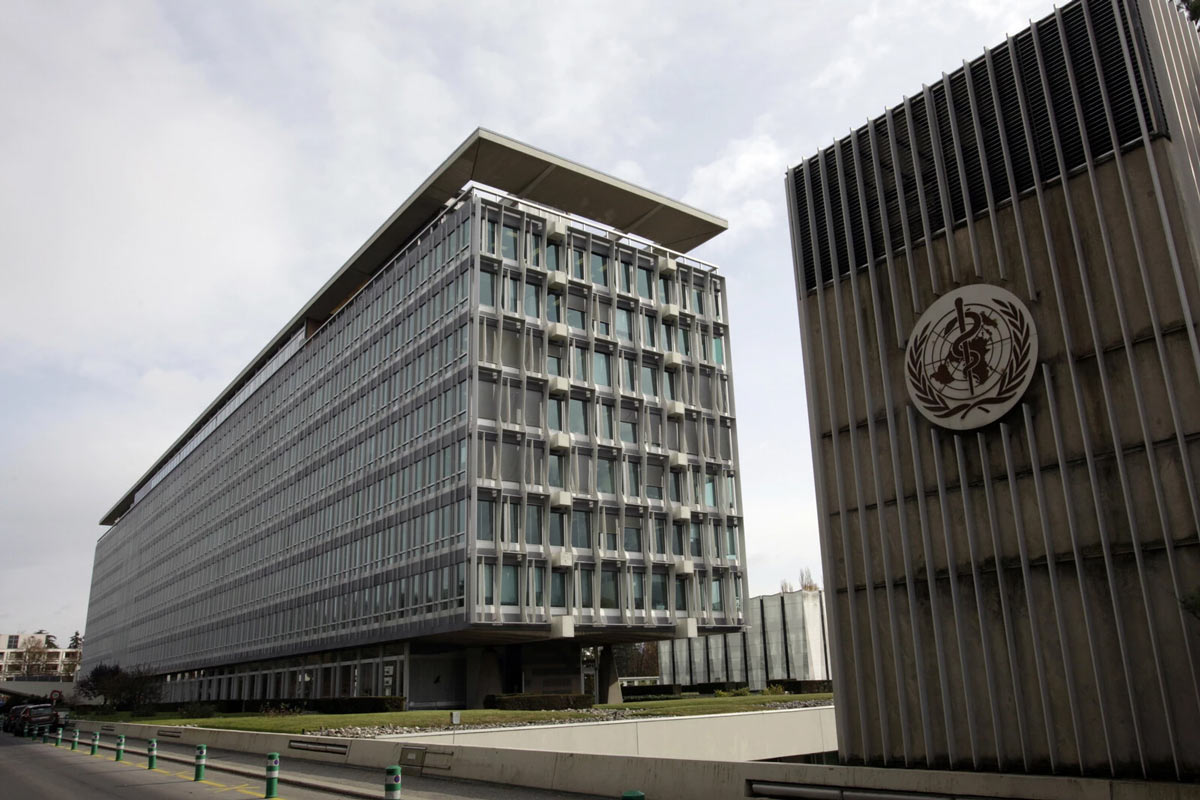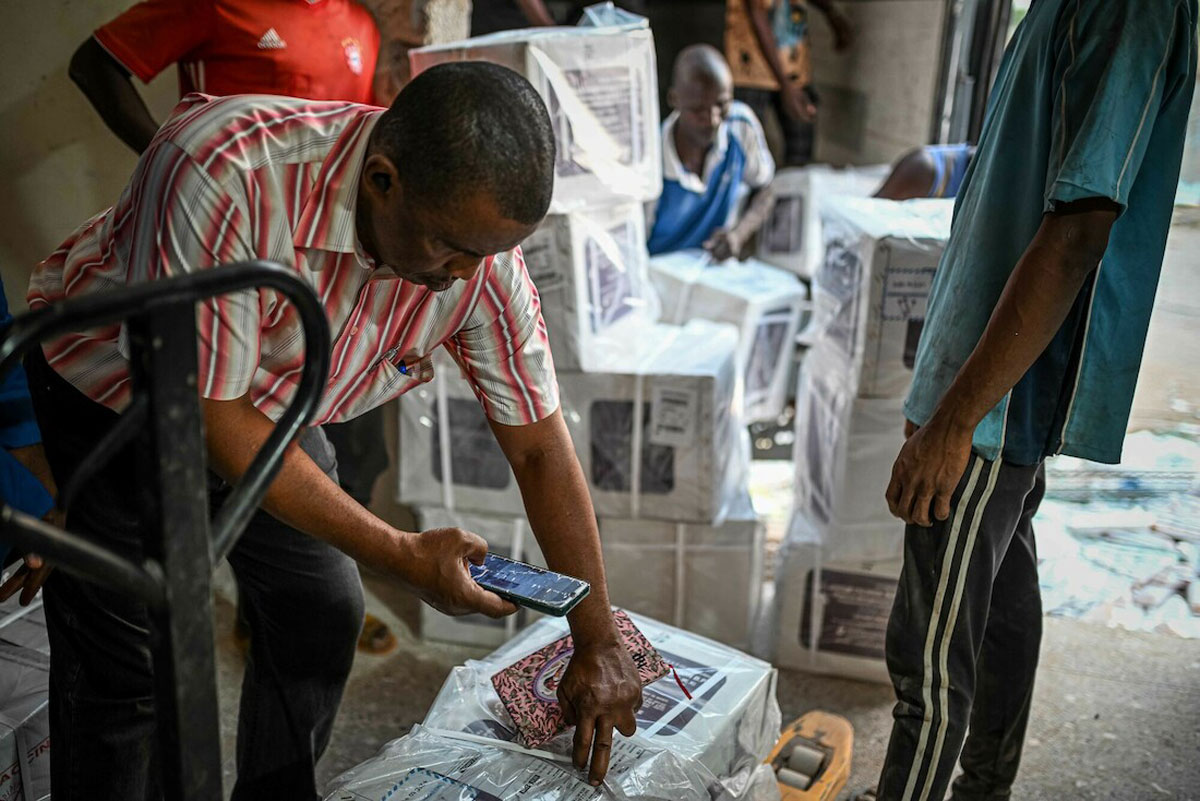A health worker, her voice slightly muffled by the black scarf she had wrapped over her face, stood in front of this group delivering a community health session. The tone in which she spoke to them in Pashto was warm, affectionate, like that of a close friend:
“My sisters, if you do not look after yourself, who will look after your children? You have an obligation to look after both yourself and your children. Eat well. If you have blood pressure problems, drink milk, it will help to lower it. If your iron is low, then spinach is a great natural source.”
Her name was Seema, one of the quietly witty, dedicated lady health workers I met during my trip.
Within a few years of her marriage, Seema’s husband died suddenly, leaving her with two young children to fend for. She was later approached by someone in the community to become a health worker, and after completing her training, she’s been working with women in Nowshera ever since.
It cannot be understated how instrumental female health-workers are in the eradication of polio. They are the gatekeepers to the homes of women in Pakistan. Like Seema, they are well-known, trusted community members who go into homes administering vaccinations, giving advice on nutrition, sanitation, and family planning. In communities that are destitute and have very little access to medication, nutritional advice might seem like bare necessities.
But malnourishment in addition to poor literacy rates is heavily linked with rates of polio. It’s ironic that Seema’s hardship was a blessing for the Afghan refugee women at the school, but her services there are gold-dust.

I later met with the headmaster of the school for Afghan refugee girls, known by everyone as Ustadh (teacher). He was a tall, gentle and erect figure who migrated from Kabul twenty years ago. Ustadh was a man of many hats: not only was he the headmaster of the school for Afghan refugee girls; he was also a member of the local shura, a council of elders whose word was effectively law in the communities they oversaw.
Ustadh spoke about the grim futures of many of the children attending the school. “Beyond these walls, there is nothing for them out there.” On vaccination, he spoke about how it was a point of distrust for many, particularly because some local religious scholars had issued fatwas, legal religious rulings, claiming that it wasn’t permissible for Muslims to vaccinate their children. The shura was a very necessary influence in appealing to religious scholars and members of the wider community and educating them that this was not in fact true, and that to protect children from debilitating viruses such as polio through vaccination was a religious obligation.
Speaking to Ustadh, it became clear that the eradication of polio isn’t simply a matter of swooping in and administering drops and injections. It’s also a matter of winning the hearts and minds of people that requires cultural and religious sensitivity, something that men like Ustadh are very acutely aware of. It’s an uphill struggle on many fronts, which requires many different solutions.
Our second stop was a health clinic nestled in a slum on close to the coast of Karachi. In Nowshera, the women I met were mostly Pashtun-speaking from Afghanistan, however; here there were women from the Sindh region, from northern Pakistan and Afghanistan, who had their own distinctive dress, language and culture.

The notorious Karachi heat, even at that time of year when it was considered to be cool, was beating down hard, a far cry from the cool northern breeze of Nowshera. Apart from a few shopkeepers and some children walking barefoot, there didn’t appear to be many people out on streets lined with colourful plastic bags tossed to the side onto mounds of rubbish, burning under the sun. The health clinic, however, was a buzzing hive of activity.
Mothers streamed into the clinic, their young babies clutched tight in their arms. As with Nowshera and any other region in Pakistan, it was the female health workers manning the helms. I watched as they spoke soothingly with mothers who would then hesitantly hand over their children, knowing what was to come as the health worker reached into the cooling box beside her, administering the polio drops followed by not one, not two, but three injections which disappeared into the soft pink flesh of babies, a piercing cry bellowing out from their small mouths. In a few seconds, it was over. It was as quick as that. Then the next mother would come in.

Saffiyah, only a few months old at the time when I met her. Before she went into the clinic, her face was jubilant as her mother proudly held onto her, playing with the beaded necklace she made herself around her daughter’s neck. After receiving her injections, Saffiyah’s eyes welled with tears, smudging the kohl in her eyes. It was the small price she had to pay for a life free of disease.
At the Karachi clinic, health workers didn’t just administer polio vaccinations, but other vaccinations such as tetanus and TB. This was part of a growing call to push through not just polio vaccination, but routine immunisation for other diseases as well. As much as eradicating polio is a priority, it is just the tip of the iceberg. Polio is a gateway disease to many others. If routine immunisation is pushed through, it will offer a long term solution which could see education and sanitation efforts implemented as well, as well as a polio-free Pakistan.
Along with a few other women, Maanvi (pictured below) was one of the community health workers who oversaw post-natal and anti-natal care in the area.

At the time we met her, Maanvi was herself six months pregnant. “When I have my baby, I’m going to return to my job after my maternity leave.” Despite facing the colossal task of visiting thousands of women living in district, going door-to-door, Maanvi and her colleagues were resolute in their determination to reach every door, every mother, and every child. She smiled as she saw the look of surprise on my face when she told me how many homes she was responsible for, and simply said: “It has to be done.”
This post originally appeared on Global One’s blog. Find out more about their work at their website: https://globalone.org.uk/








